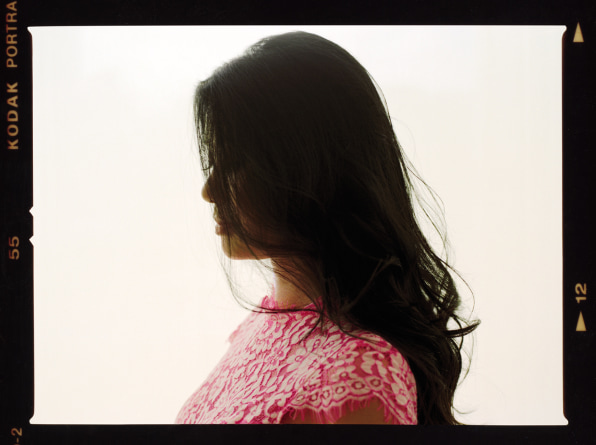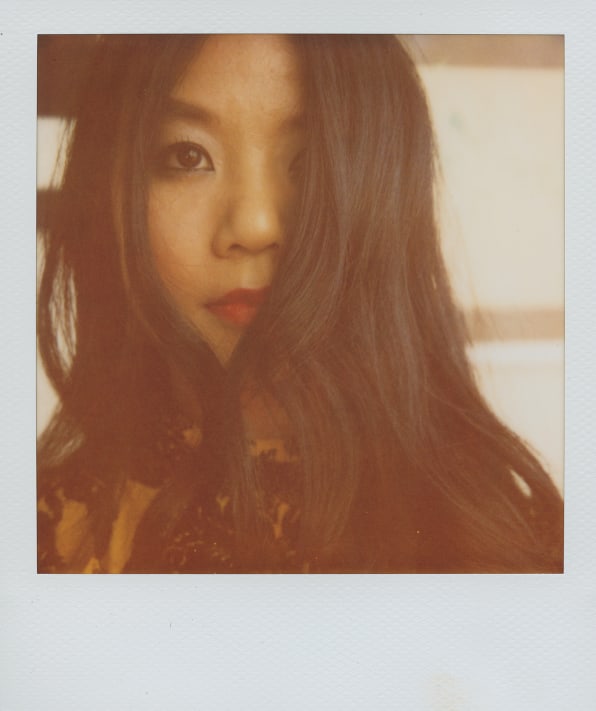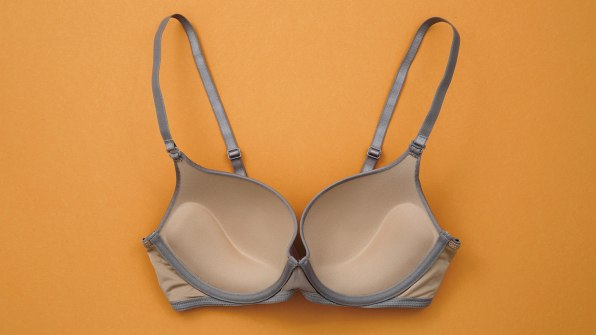3 Inch Cup Drawer Pulls
"Look at this thing: It's like a Sealy mattress."
Deep inside a Victoria's Secret store–one of two within a block of each other on this stretch of Broadway in downtown Manhattan– Michelle Lam is holding up a sea-green push-up bra. As two white-haired women nearby puzzle over offerings from the Fabulous by Victoria's Secret collection and a twenty-something paws through a bin of thongs (five for $26.50), Lam squeezes the mound of padding, looking simultaneously disgusted and excited. Lam, 35, is the founder of True&Co., an online retailer that's using the power of data to improve the bra-shopping experience for women. Today's field trip counts as opposition research: Victoria's Secret accounts for more than half of the $11 billion U.S. intimate apparel market. According to True&Co.'s data, however, only one in five women is actually looking for the kind of bras that Victoria's Secret is selling–which to Lam represents an opportunity as big as the cleavage staring down at us from photographs on all sides. True&Co. wants women "to look at themselves in the mirror and feel like the most beautiful version of themselves, which is what a beautiful bra does," she says, pointing to a photo of a Victoria's Secret Angel. "That's not every woman's definition of beauty."
Bra shopping has never been a very satisfying experience for women, who are often faced with oversexualized advertising, inexperienced bra fitters, and harshly lit dressing rooms. But the problems begin with the way bras are sized. "It doesn't matter if you are a 32C or a 32B; the band and cup size tell only half the story," Lam explains. What neither metric accounts for is the curvature of the breast (shallow or full) or the weight distribution of the breasts (where they sit on a woman's chest). This is where the biggest variation occurs among women, meaning that even a bra in your size might cause you to spill over or have fat rolls under your arms or straps that won't stay up–and in ways both physical and psychological, make a woman look less attractive.
True&Co. is out to correct all of the unpleasantness. The differences start on its home page, where large type induces visitors to "take the quiz." "The quiz" is True&Co.'s primary data-gathering mechanism: You answer a series of questions–"How does your band fit?" "How do your breasts rest in your bra?"–and the company's algorithm fills a personalized shop with bras, selected from more than 50 lingerie brands, that are most likely to fit your particular size and shape. (Eighty-six percent of the bras True&Co. fit-tests don't fit a single one of the body types identified and never make it into the algorithm.) You can either purchase bras outright or have up to five of your choosing sent to you, at no cost, to try on. You can send back the ones you don't want; True&Co. will charge you for what you keep. Then you're invited to complete another short survey about how each bra fit you.

The company, which has grown tenfold in the past year, has been called both "the Warby Parker of bras" and "the Netflix of bras," and each is more or less accurate. So far, more than a million women have taken the fit quiz, giving the company nearly 15 million data points to mine for refining its products and service. Although True&Co. has been criticized by some lingerie bloggers, who contend that the fit quiz is a subpar substitute for an expert bra fitter, Lam says that her company has an 80% success rate with women who come to the site, a figure that she says will rise as additional customer commentary works its way back into the system.
True&Co. is not a niche retailer, Lam emphasizes. Its mission is not to cater to underserved size groups. What it is attempting to do is make the process of buying bras something that women can feel good about. It's the reason Lam started the business in the first place. "I was in a department store fitting room trying on bras," she says. "Every one of them made my body look worse than I thought it should look." A former investor who'd worked at the Boston Consulting Group and Microsoft Corporate Strategy, and who became Bain Capital Ventures' first female principal, Lam had recently quit her job in Boston and moved to Silicon Valley with her husband, a professor of chemical engineering at CalTech. Rather than blame herself and her body, she chose to blame the bras. "Sitting there in the fitting room, I was like, 'How can we use technology and data to rethink this?'"
What happened next is now company legend: Lam charged 500 bras to her credit card, put them all in her living room, and bribed her friends with sushi and champagne to try them on and give her feedback. That information was the basis for the True&Co. fit quiz.
"We're in this incredible age where new brands are making people's lives easier, more convenient, more personalized," says Kleiner Perkins venture capitalist Aileen Lee, whose own fund, Cowboy Ventures, was involved in True&Co.'s seed round in 2012, and who now sits on its board. "Starbucks did this magical thing where it took a product that people didn't really care that much about and made it this treat. It makes you feel better about your day and gives you a chance to reflect, makes you feel a little special." For a lot of women, Lee says, buying intimates had been the equivalent of drinking 99-cent diner coffee. "True&Co. has turned it into, Oh, my god! I like what I'm wearing, and it makes me feel more confident, and it makes me happy."
These happy customers have yielded a trove of insights: True&Co. has identified 6,000 distinct female body types, for example, which it has sorted into eight different color-coded categories, each corresponding to a different breast shape and weight distribution. It's found that 8 in 10 women are "completely militant" about the level of padding they prefer, and 6 in 10 prefer a bra that's either unpadded or lightly lined. Dark bras outsell light bras by a ratio of three to one.

With all of this intelligence at its disposal, True&Co. knew it would be crazy not to market its own line of bras, and so it has–two, in fact, which now account for 40% of the company's revenue. The first, She Walks in Beauty (+ Light), debuted late last year. It was a limited collection of bras and a few panties designed to address common fit issues. The second line, Uniform, represents the full expression of True&Co.'s mission. Launched in June, it's a complete collection of bras, panties, and loungewear based on the accumulated perspectives of more than half a million women.
In reality, however, the line is not "designed by 500,000 women," as the site's ad copy says. Both Uniform and She Walks were designed by one woman: Nikki Dekker, who works out of her apartment in Brooklyn. It's an important distinction, because while Dekker receives weekly reports from the company's marketing and merchandising teams and has access to every conclusion the data team derives, the products reflect her creative sensibility. The data helps her focus.
Dekker, 36, began her career designing intimate apparel for Target, where the designer and the customer were separated by infinite layers of corporate bureaucracy. "With True–I don't know if this is the correct term, but I've been calling it 'mass customization,' " she says. "We have the ability to get feedback and be like, oh, they want this bra to be smaller in the cup, or have a racer back. Okay, I'll do something like that. I'll put my own spin on the outside of it, but make sure it works the way that they need it to." Although Lam and Dekker initially intended to manufacture their products in the U.S., they found that the factories with the best capacity and technical capability to produce at scale were in China, so they wound up cobbling together their own supply chain there–of "manufacturers who don't do business with Victoria's Secret," Lam says.
After our Manhattan shopping trip, Lam and I go to a Soho café where she shows me some True&Co. products she's brought with her: a wire-free T-shirt bra (45% of women complain about pain from underwires) and a soft, triangle-shaped bra that distracts attention from underarm bulging (which 10% of women complain about). But there's also a push-up in red with a black lace overlay, and a sweatshirt with cutouts at the shoulders that's both comfortable and sexy. All of True&Co.'s products make sense from a data standpoint, but not all the choices Lam and co. make are rational.
"Our woman is a contradiction," Lam says, before launching into a lyric from the song "All of Me," by John Legend: "All your curves and all your edges / All your perfect imperfections." It brings to mind True&Co.'s logo, which uses typography that references Leonardo da Vinci's Vitruvian Man. He depicted a man inside a square inside a circle–the search for perfect body proportion. If anything, though, True&Co.'s customer is the anti-Vitruvian: a woman in the world, imperfect and beautiful in her own way.
"I can't get that song out of my head," Lam says with a laugh. "We're so much more fascinating than guys."
A Better Bra

True&Co.'s Uniform Pushup ($46) was designed to fit 33% of customers, who tend to be bottom-weighted and have shallower curvature, so they often have extra room at the top of the cup. Some details:
- The heart-shaped neckline bends inward where these women would otherwise experience gaps.
- Eight percent of women report pain at the "center gore," where the two underwires meet. The center gore on the Uniform Pushup is lower and less likely to press into the sternum.
- The "banana pad," aka the push-up part of the push-up bra, is specifically designed to provide support to women whose breasts tend to fall to the sides.
- Forty percent of women prefer modest padding.
- Most True&Co. users have issues with itchy elastics and stitching, so this bra is made from silky microfiber, and the hook-and-eye clasp is cushioned with extra padding.
>> Design Is Changing How We Dress
3 Inch Cup Drawer Pulls
Source: https://www.fastcompany.com/3035228/cup-size-isnt-everything
Posted by: buchananlatepred.blogspot.com

0 Response to "3 Inch Cup Drawer Pulls"
Post a Comment